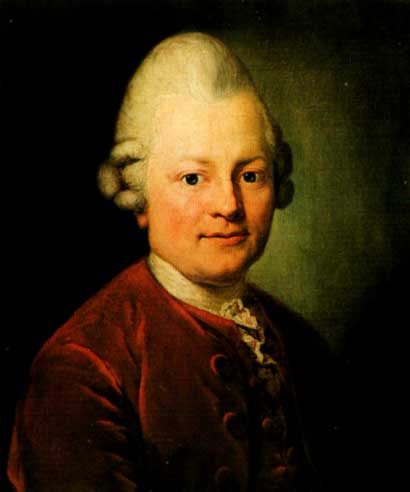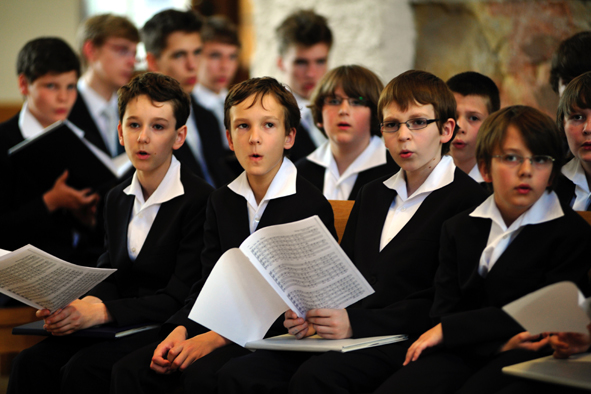|
Dieter Härtwig
Dieter Härtwig (18 July 1934 – 30 December 2022) was a German dramaturge, musicologist and author of numerous writings on Dresden's music history and its personalities. Biography Dieter Härtwig was born in Dresden on 18 July 1934. After gaining his Abitur from Kreuzschule, Härtwig studied musicology and German literature at the University of Leipzig. He was awarded a doctorate in 1963 with a dissertation on Rudolf Wagner-Régeny. He worked as a dramaturg at the Mecklenburgisches Staatstheater Schwerin and at the in Radebeul. From 1965 to 1997 he was chief dramaturg of the Dresden Philharmonic, and for many years he was also deputy artistic director. The honorary professor at the Institute for Musicology of the Hochschule für Musik Carl Maria von Weber has written numerous articles and contributions, for example on the Dresden Philharmonic and the Dresdner Kreuzchor; he has also written numerous biographies of artists. He was also involved in the Dresden Music Festiv ... [...More Info...] [...Related Items...] OR: [Wikipedia] [Google] [Baidu] |
Dramaturge
A dramaturge or dramaturg (from Ancient Greek δραματουργός – dramatourgós) is a literary adviser or editor in a theatre, opera, or film company who researches, selects, adapts, edits, and interprets scripts, libretti, texts, and printed programmes (or helps others with these tasks), consults authors, and does public relations work. Its modern-day function was originated by the innovations of Gotthold Ephraim Lessing, an 18th-century German playwright, philosopher, and dramatic theory, theatre theorist. Responsibilities One of the dramaturge's contributions is to categorise and discuss the various types of plays or operas, their interconnectedness and their styles. The responsibilities of a dramaturge vary from one theatre or opera company to the next. They might include the hiring of actors, the development of a season of plays or operas with a sense of coherence among them, assistance with and editing of new plays or operas by resident or guest playwrights or compo ... [...More Info...] [...Related Items...] OR: [Wikipedia] [Google] [Baidu] |
Dresdner Kreuzchor
The Dresdner Kreuzchor is the boys' choir of the Kreuzkirche in Dresden, Germany. It has a seven-century history and a world-wide reputation. Today, the choir has about 150 members between the ages of 9 and 19, from Dresden and the surrounding region. The boys attend the Kreuzschule in Dresden. They are also called "Kruzianer". Until summer 2022, the director of the choir is Roderich Kreile, who is the 28th "Kreuzkantor" (Cantor) since the Reformation. Next Kreuzkantor will be . The Cantor between 1971 and 1991 was Martin Flämig. Overview The repertoire of the choir includes compositions from the early Baroque (Heinrich Schütz, Johann Sebastian Bach), the early 19th century and modern work. Several recordings are available from Berlin Classics, Deutsche Grammophon and Capriccio. The choir often performs with the Sächsische Staatskapelle Dresden and the Dresden Philharmonic Orchestra. The choir sings Vespers almost every Saturday at 5 pm and on Sunday at 9:30 am in th ... [...More Info...] [...Related Items...] OR: [Wikipedia] [Google] [Baidu] |
2022 Deaths
This is a list of lists of deaths of notable people, organized by year. New deaths articles are added to their respective month (e.g., Deaths in ) and then linked below. 2025 2024 2023 2022 2021 2020 2019 2018 2017 2016 2015 2014 2013 2012 2011 2010 2009 2008 2007 2006 2005 2004 2003 2002 2001 2000 1999 1998 1997 1996 1995 1994 1993 1992 1991 1990 1989 1988 1987 1986 Earlier years ''Deaths in years earlier than this can usually be found in the main articles of the years.'' See also * Lists of deaths by day * Deaths by year (category) {{DEFAULTSORT:deaths by year ... [...More Info...] [...Related Items...] OR: [Wikipedia] [Google] [Baidu] |
1934 Births
Events January–February * January 1 – The International Telecommunication Union, a specialist agency of the League of Nations, is established. * January 15 – The 8.0 1934 Nepal–Bihar earthquake, Nepal–Bihar earthquake strikes Nepal and Bihar with a maximum Mercalli intensity scale, Mercalli intensity of XI (''Extreme''), killing an estimated 6,000–10,700 people. * February 6 – 6 February 1934 crisis, French political crisis: The French far-right leagues rally in front of the Palais Bourbon, in an attempted coup d'état against the French Third Republic, Third Republic. * February 9 ** Gaston Doumergue forms a new government in France. ** Second Hellenic Republic, Greece, Kingdom of Romania, Romania, Turkey and Kingdom of Yugoslavia, Yugoslavia form the Balkan Pact. * February 12–February 15, 15 – Austrian Civil War: The Fatherland Front (Austria), Fatherland Front consolidates its power in a series of clashes across the country. * February 16 – The ... [...More Info...] [...Related Items...] OR: [Wikipedia] [Google] [Baidu] |
German Musicologists
German(s) may refer to: * Germany, the country of the Germans and German things **Germania (Roman era) * Germans, citizens of Germany, people of German ancestry, or native speakers of the German language ** For citizenship in Germany, see also German nationality law **Germanic peoples (Roman era) *German diaspora * German language * German cuisine, traditional foods of Germany People * German (given name) * German (surname) * Germán, a Spanish name Places * German (parish), Isle of Man * German, Albania, or Gërmej * German, Bulgaria * German, Iran * German, North Macedonia * German, New York, U.S. * Agios Germanos, Greece Other uses * German (mythology), a South Slavic mythological being * Germans (band), a Canadian rock band * German (song), "German" (song), a 2019 song by No Money Enterprise * ''The German'', a 2008 short film * "The Germans", an episode of ''Fawlty Towers'' * ''The German'', a nickname for Congolese rebel André Kisase Ngandu See also * Germanic ... [...More Info...] [...Related Items...] OR: [Wikipedia] [Google] [Baidu] |
Evangelische Verlagsanstalt
The Evangelische Verlagsanstalt (EVA) is a denominational media company founded in Berlin in 1946. Its shareholders are the and the Evangelical-Lutheran Church of Saxony. The managing director is Sebastian Knöfel. Book publisher The range includes numerous theological-scientific publications, religious education, congregational literature including calendars as well as Christian Belles-lettres with a focus on biographies and stories. Newspapers and magazines The EVA publishes, among others, the ', the ', the ''Berliner Theologische Zeitschrift'' and the ' (formerly ''Die Christenlehre''). Private radio The Evangelische Verlagsanstalt GmbH is a shareholder in commercial broadcasting. In addition, female employees of the Evangelische Verlagsanstalt work as church radio editors in the Saxon broadcasters and . History 1946–1989 Under the licence number 54 of the Soviet Military Administration in Germany, the Evangelische Verlagsanstalt GmbH was founded in 1946 with hea ... [...More Info...] [...Related Items...] OR: [Wikipedia] [Google] [Baidu] |
Matthias Herrmann
Matthias Herrmann (born 14 October 1955) is a German musicologist and university professor. Life Born in Mildenau, Herrmann became a member of the Dresdner Kreuzchor conducted by Kreuzkantor Rudolf Mauersberger, later Martin Flämig. He then studied musicology at the University of Leipzig and later became a staff member of the music department of the Saxon State Library in Dresden as well as of the cultural editorial staff of the '. He wrote his doctorate about the court-music of the House of Wettin in Dresden around 1500 and was habilitated on compositional work, especially the early work of Rudolf Mauersberger. He worked as a scientific assistant and senior assistant at the in Dresden and was appointed to a professorship for music history at the Institute for Musicology of the Hochschule für Musik Carl Maria von Weber Dresden in 1993. He has published the series ''Sächsische Studien zur älteren Musikgeschichte'' at the Klaus-Jürgen Kamprad publishing house in Altenbur ... [...More Info...] [...Related Items...] OR: [Wikipedia] [Google] [Baidu] |
Saxon State And University Library Dresden
The Saxon State and University Library Dresden (full name in ), abbreviated SLUB Dresden, is located in Dresden, Germany. It is both the regional library () for the Federal Republic of Germany, German State of Saxony as well as the academic library for the Dresden University of Technology (). It was created in 1996 through the merger of the Saxon State Library (SLB) and the University Library Dresden (UB). The seemingly redundant name is to show that the library brings both these institutional traditions together. The SLUB moved into a large new building in 2002 to bring together the inventories of both its predecessors. Its collection numbers nearly nine million, making it one of the largest public library, public archival centers in the Federal Republic of Germany. It holds significant treasures, including the Codex Dresdensis, a book which was believed to be the oldest surviving book written in the Americas, dating to the 11th or 12th century. Within the SLUB is the Deutsche F ... [...More Info...] [...Related Items...] OR: [Wikipedia] [Google] [Baidu] |
Dresden Music Festival
The Dresden Music Festival (German: Dresdner Musikfestspiele) is an annual music festival which takes place in Dresden, Germany in May and June. Although classical music, including contemporary classical music, forms the core of its performances, world music, jazz, and dance are also presented. One of its hallmarks is that the choice of repertoire is built on a specific theme which changes each year. The festival was established by government decree in 1978 when Dresden was still part of the German Democratic Republic. The German cellist Jan Vogler has been its artistic director since 2009.Rosenberg, Donald (7 June 2009)"Dresden Music Festival embraces spirit of renewal for Germany and the world" ''Cleveland Plain Dealer''. Retrieved 7 January 2016. The performances are held at a variety of venues in the city, including many baroque buildings destroyed in the bombing of World War II and since rebuilt, including the Semperoper opera house, the Dresden Frauenkirche, and the summer pal ... [...More Info...] [...Related Items...] OR: [Wikipedia] [Google] [Baidu] |
Hochschule Für Musik Carl Maria Von Weber
The Hochschule für Musik Carl Maria von Weber (or Dresden University of Music Carl Maria von Weber; also/formerly known as Dresden Conservatory or Dresden Royal Conservatory) is a university school of music, university of music in Dresden, Germany. History The Hochschule opened on 1 February 1856 and is one of the oldest German conservatoires. Francesco Morlacchi, Carl Maria von Weber and Richard Wagner made reference to the necessity of establishing institutional training for musicians in Dresden. On 1 February 1856, a violinist of the Royal Orchestra, Friedrich Tröstler, founded the first music school in Dresden. In 1881 the title "royal" was granted, and it changed its name to "Royal Conservatoire", although it was a private institution. From 1881 till 1918 was an institution under royal patronage and from 1937 onwards under the municipal authority. The original building of the hochschule was destroyed during World War II and all teaching activities were moved to Mende ... [...More Info...] [...Related Items...] OR: [Wikipedia] [Google] [Baidu] |
Musicologist
Musicology is the academic, research-based study of music, as opposed to musical composition or performance. Musicology research combines and intersects with many fields, including psychology, sociology, acoustics, neurology, natural sciences, formal sciences and Computational musicology, computer science. Musicology is traditionally divided into three branches: music history, systematic musicology, and ethnomusicology. Historical musicologists study the history of musical traditions, the origins of works, and the biographies of composers. Ethnomusicologists draw from anthropology (particularly field research) to understand how and why people make music. Systematic musicology includes music theory, aesthetics, Music education, pedagogy, musical acoustics, the science and technology of Organology, musical instruments, and the musical implications of physiology, psychology, sociology, philosophy and computing. Cognitive musicology is the set of phenomena surrounding the cognitive m ... [...More Info...] [...Related Items...] OR: [Wikipedia] [Google] [Baidu] |





